02 Feb Basis Period Reform: How will this change affect my business?
A Basis Period is simply the period on which your tax in the year is based upon. A business’s basis period is usually the same as its accounting year, with exceptions in the first year of trade.
The current system used for calculating basis periods is known as the ‘current year basis’, which uses the rule that the basis period for a tax year is the 12 months ending with the accounting date in the tax year. However, while 93% of sole traders and 67% of partnerships businesses draw up their accounts to 31 March or 5 April every year some businesses work towards an alternative accounting date.
If your business’s accounting date is not 31 March or 5 April every year, some of your profits will be taxed twice in the first year of trade, this is referred to as ‘overlap’. The extra tax paid is noted on the Tax Return and available for relief in the final year of trade as ‘overlap relief’
HMRC are eager to explore basis period reform to create a simpler system with a prescribed set of rules for allocating trading income and remove double taxation on overlapping periods. The new proposed basis period system will use the tax year as the basis for assessment and will be known as the ‘tax year basis’, meaning that businesses would be taxed on profits arising in a tax year (6 April to 5 April) and not based on a business’s specific accounting date or period. This change would align the way self-employed profits are taxed with other forms of income, such as property and investment income.
There are a few benefits to the reformed ‘tax year basis’, including:
– It could simplify Making Tax Digital for Income Tax for businesses, significantly reducing the number of different reporting dates that taxpayers must consider by aligning the Making Tax Digital quarterly updates for trading income to the tax year it would significantly reduce the number of different reporting dates that taxpayers must consider.
– Overlapping basis periods would be removed meaning that profits would no longer be taxed twice at the start of a business.
– It also removes the potential for basis periods to cover a significantly different period than the tax year to which they relate, bringing the taxation of profits much closer to the time they are earned making it easier for businesses to plan their tax payments.
However, the change will not be welcomed by all as alignment with a 5th April/31st March year-end will not be a good fit for many industries. One of which is agriculture with Spring being a very busy time on the farm and would mean a lack of resources to account for year-end stock and other accounting requirements.
In addition to the valuation burden for Farmers, it will undoubtedly cause issues for accountants and in turn individuals as the deadline period between year and Tax Return Filing dates on 31st January will, of course, be shortened for many, potentially causing a bottleneck if the information is supplied late.
The transition from the ‘current year Basis’ to the ‘tax year Basis’ will take place from 2023 to 2024, with the new rules coming into force on 6 April 2024. Our team of leading tax experts can give you proactive advice and guidance to prepare for the changes in basis periods, please contact us via email at mail@dhco.co.uk or on 01573 225082.




